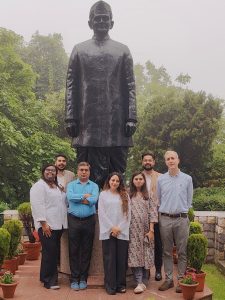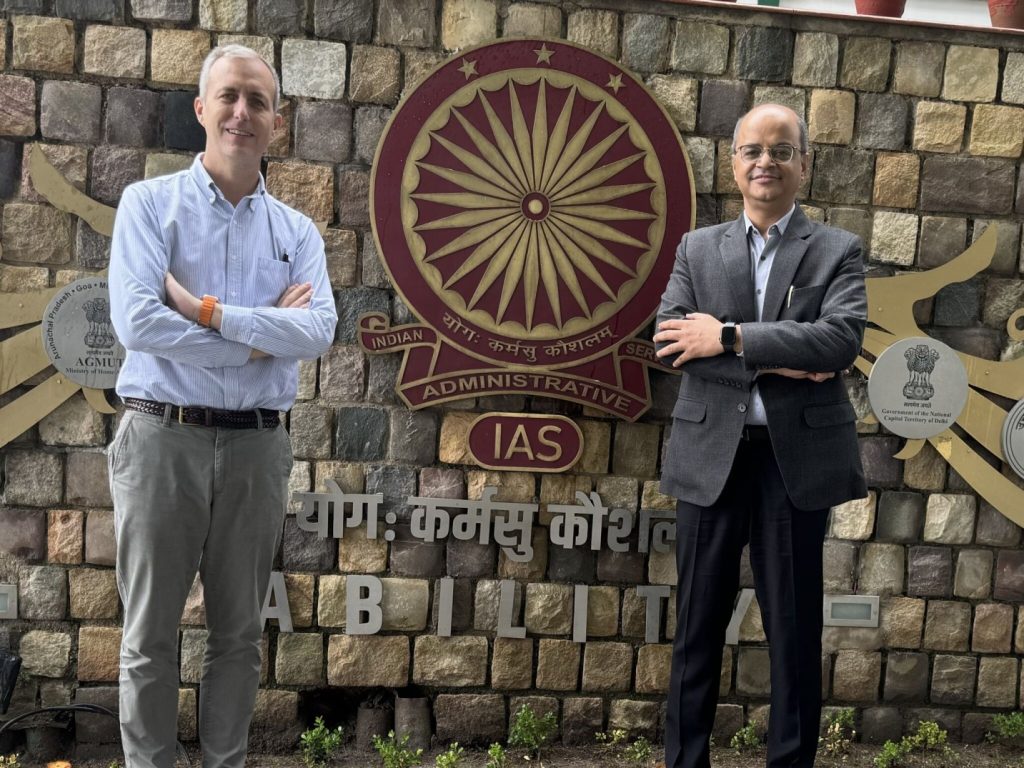Delivering Innovative Systems Thinking Training to IAS Officers at LBSNAA

On July 3, 2024, the Gupta-Klinsky India Institute (GKII) at Johns Hopkins University, in partnership with the Johns Hopkins Bloomberg School of Public Health, conducted a Friday Night at the Emergency Room (FNER) simulation training at the Lal Bahadur Shastri National Academy of Administration (LBSNAA). This innovative collaboration, as part of LBSNAA’s Mid-Career Training Program, engaged 83 IAS Officers who have completed 10-15 years of service, aiming to enhance their systems thinking capabilities in public health and beyond.
FNER, an interactive board game set in a hospital environment, promotes systems thinking through engaging gameplay. While initially set up in a healthcare context, FNER’s learning objectives extend to young and mid-career leaders across various sectors. Drawing on methodologies such as Six Sigma and Agile, the training encourages participants to innovate and enhance their practices. The FNER simulation helps leaders understand the intricacies of managing a health system and the importance of collaborative problem-solving.
The training was led by distinguished JHU alumnus Dr. Rakesh Gupta (IAS ’97, BSPH ’11), Additional Secretary to the President of India, and Dr. Brian Wahl, former Associate Research Professor in the Department of International Health. They were joined by representatives from the Uttar Pradesh Health Systems Strengthening Project – Aman Kumar Mishra, Raghukul Pandey, Sana Ali, Swati Srivastava, and JaeLynn Taylor – and GKII Program Manager Meghashish Sharma.
Dr. Wahl outlined the purpose, aims, and rules for the program before initiating the gameplay, which lasted an hour. Team members from the Uttar Pradesh Health Systems Strengthening Project supported participants in navigating the simulated complexities of a health system requiring sustainable solutions.
Following the gameplay, Dr. Rakesh Gupta led a reflective debrief, connecting simulation outcomes with real-world scenarios where systems thinking has boosted efficiency, fostered collaboration, and led to innovative breakthroughs. Participants shared insights on how the simulation mirrored the challenges they face in their roles and discussed strategies to implement systems thinking in their work. This reflective process not only reinforced the learnings but also inspired participants to envision how these strategies could be applied to drive transformative change within their own domains.
Dr. Wahl highlighted the significance of the session, stating, “Johns Hopkins is honored and privileged to engage with LBSNAA through this exciting simulation exercise, helping to support IAS officers as they enhance systems thinking skills for better citizen-centric services.”
The Hopkins association with LBSNAA underscores the importance of equipping civil servants with the tools to deliver citizen-centric services at the highest standards. This support aligns with GKII’s mission to leverage research and education to address critical health issues in India and build sustainable, impactful solutions.
